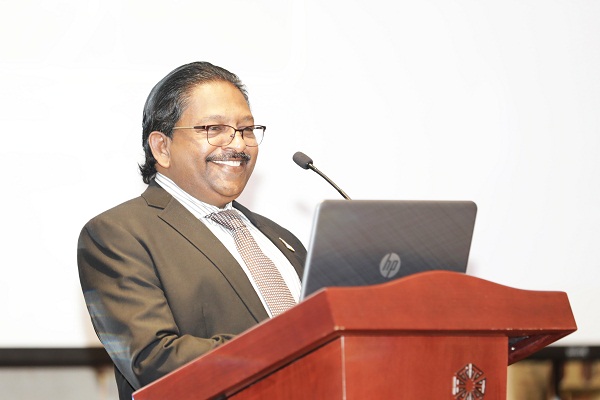
With inclusion of 3D printing and Mixed Reality (Virtual Reality + Augmented Reality) the learning experience can be taken to a completely different level. There is a unique opportunity of learning with the latest digital technologies, said Dr Christopher Abraham, CEO & Head, Dubai Campus, SP Jain School of Global Management to Elets Media Network.
In the past few decades there has been cutting edge research from the annals of neuroscience that prove our awesome human brains change and grow during the learning process. The emerging field of educational neuroscience is attempting to answer fascinating questions like how the brain learns, how it stores the learning and how it retrieves the learning at the opportune moments. Contemporary insights from brain science tell us that every time a human being learns something new, the brain forms new neural connections. The brain is also excited when novelty and variety are introduced in the learning process.
Connecting these insights with the latest digital technologies available with us for education, a very interesting confluence of ideas can be tested to enhance the learning process and better the experience for students. The z generation (those born after 2000) are naturally tech savvy and enjoy using technical gadgets with ease. With this premise, a whole range of approaches can be attempted to engage and enhance the student learning experience. Today, advanced educational technologies are emerging as important instructional methods for student engagement and self-directed learning.
Also read: Artificial Intelligence making learning very simple at Cyboard School
In recent advances, behavioral scientists have explored the learner’s cognitive processes during different stages of learning. This understanding combined with the use of advanced technologies are enhancing the learning experience to the extent that students feel more “connected” as they can explore the concept beyond the rigid walls of their classrooms. Current research proves that when students are using digital resources, building multimedia projects, collaborating, and connecting online, and conducting online research, they are more interested and engaged in their schoolwork today, and they feel more connected to what their future holds tomorrow. Most of today’s students believe that they will be using more technology after high school—in college, in their future occupations, and in their personal lives—to work collaboratively, research, create and solve problems. This revelation gives educators the impetus to explore novel approaches combining traditional human interventions with advanced digital technologies.
Technology tools for enhanced learning
From smartphones to tablets to various collaborative tools, the world of digital learning has undergone dramatic changes. Once condemned and banned the ubiquitous smartphone has become the preferred mode of choice in these uncertain pandemic times. With newer technologies that foster web-based video collaboration and peer to peer collaboration using cloud-based tools such as google drive, dropbox etc. These technologies are even assisting special education students through appropriate apps designed to assist those with learning disabilities. For the teachers, apps such as Socrative, Polleverywhere.com and Remind101,to name just a few, enable them to assess students’ knowledge in an exciting manner and send out relevant and subtle reminders for project and assignment deadlines.
In addition, inclusion of gamification in many learning scenarios also excites the learners with the concept of competition and rewards, which in turn excite the neural areas of the brain. The idea of “play” as a learning tool is gaining increasing significance. With inclusion of 3D printing and Mixed Reality (Virtual Reality + Augmented Reality) the learning experience can be taken to a completely different level. While 3D printing addresses “the maker” and the creative instinct, Mixed Reality can bring to life historical experiences and three-dimensional perspectives of the human anatomy, as successfully used by the Duke Medical School. With Big Data & Data analytics also gaining popularity, personalized learning experiences can be further enhanced through App based interventions that can address every student’s learning experiences. With recent advances in Human/Brain Computer Interface (HCI), the future of learning promises to be even more exciting.
The COVID-19 pandemic has dramatically changed the way we teach and learn. Distance learning using digital technologies has become the new norm. This situation offers a unique opportunity to combine our knowledge of the neuroscience of learning with the latest digital technologies in education to create a revolutionary paradigm shift which can not only enhance the learning experience of current learners but also help in widening the reach of education even to the unreached.






















